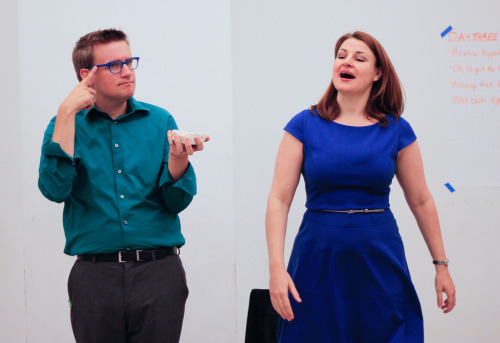Yvonne has created music and theater with over 5000 public and private school students in the tri-state area. Using interactive lessons that follow a student-led pedagogy, she has helped hundreds of young people create original scripts based in experiences they have had or ideas they are grappling with; guided whole classrooms through the process of adapting a book into a script; used theater techniques to explore mathematical and scientific concepts with grade-school students; led toddlers through the process of exploring and making music; and written and performed interactive theater pieces that encourage healthy practices for navigating conflict and dealing with bullying. It generally ends with discovery, and further questions, and a lot of laughter.
In the popular vernacular “drama” has come to mean a stressful or fraught situation; something to be avoided. As an art form “drama” is what results from mining the breadth of human experience for the meaning that can be made from formally examining the intricacies of that experience. We readily avoid the sort of conflict associated with the popular vernacular definition of “drama.” “Drama” the art form, on the other hand, embraces it; making it a perfect vehicle to expose disparities between our personal understanding and the realm of the possible. It allows us to see conflict as something that is an essential part of the human experience — a terrain of many paths that must be navigated — one that can leave us richer for the journey or deplete our resources, depending on the path we choose. As a teacher of drama, I first recognize that each person who walks into my classroom is an expert on their own experience and on what it is to be human. I see it as my job to draw parallels between lived experience and created work so that students can use their unique expertise to widen their understanding of humanity. By working through the creative process together we strive to stretch that expertise, examining the similarities and differences that color the vicissitudes of the human condition. Following a student-centered, and often student-led, pedagogy, I plan and execute lessons that introduce students to historical and contemporary works of dramatic literature. I engage students’ own experience, memory, and community as inspiration for original work. I ground each exploration in current and historical events to frame creative works as well as the recognizable and vanguard forms that make theatre such a vibrant and long-lasting art form.



